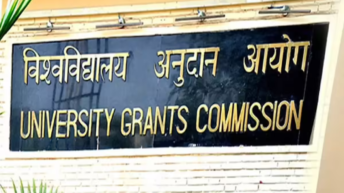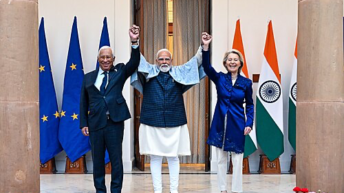
In some way, the history of humankind has been shaped through migration. The immigration of humanity has been a continuous phenomenon that has played a role in shaping human history; the migration of humans has contributed to the settlement of the ‘new world’ and to the expansion of imperialism at the end of medieval times by Europeans. The idea of migration is also not new to the Indian settlement; they practiced migration for trade but did not often settle in foreign lands. Indian migration did not ramp up until the emergence of British colonialism. Then, Indians migrated as labourers to other British colonies to work in the agricultural fields as they were found to be valuable workforce. We can observe that during this time, most Indian emigration went only to the British colonies.
Over the years, India’s Diaspora policy has seen a significant evolution; Nehruvian India gave minimal acknowledgment to its Diaspora whereas the Vajpayee government evinced strong interest in overseas India. The Indian diaspora constitutes 2% of the total Indian population with a wealth amounting approximately to 1 trillion dollars, maintaining cultural traditions when abroad, taking a deep interest in the fate of India, making remittances, maintaining family traditions, integrating culturally into host countries but remaining well aware of its Indian origin and influencing the host states by lobbying for the homeland.
Additional concerted efforts were made during the Prime Ministership of Narendra Modi to strengthen the diaspora policy. Reversing the trend of knowledgeable people leaving the country by making India a digital hub and also an attractive job market, seeking the support of the diaspora for building up India, and developing a sense of pride among the diaspora have been some of the initiatives that have brought the diaspora into the mainstream during Mr, Modi’s tenure.
India’s diaspora and its implication on foreign policy
Indian Diasporas across the world are ‘permanent ambassadors’ of the country -P.M. Narendra Modi
The presence of a 32.854 million strong diaspora spread over 210 countries across the globe provides an instrumental basis for India’s diplomatic relationship with other states. Several personalities argue that Indian foreign policy and Diaspora policy are two sides of the same coin when putting forth the national interest. However, it should be noted that the country’s diaspora policy has been a bit spotty.
Apart from all the politics and sentimental reasons behind them, we cannot overlook that Diaspora committees have been instrumental in shaping and pushing India’s interest forward in various internal and external political and economic processes. A few illustrations of that could be the Indian American community’s stupendous lobbying efforts which played a major part in developing the Indo-US civil Nuclear cooperation Agreement, by defeating the Burton Amendment and Justifying India’s Nuclear tests in 1998 and the Kargil war in 1999.
The strategy of India’s diaspora soft power is to promote “its cultural legacy, historical linkages, geopolitical and economic considerations.” This soft power play promotes India’s image, culture, tourism, and other assets all over the world.
Under PM Narendra Modi’s leadership, the NDA Government is actively pushing for the worldwide integration of ethnic Indians (NRIs and PIOs). Since assuming office in May 2014, he has traveled to most of the nations where there is a significant population of Indian descent, including the United States, Australia, Britain, Canada, Fiji, Mauritius, Seychelles, Singapore, Sri Lanka, Bhutan, France, Germany, and Japan. He has made announcements about policies aimed at reconnecting the Indian diasporas with their homeland in numerous locations.
Strategic Asset
India’s successful entrepreneurs and global leaders of Indian origin, ranging from Presidents and Prime Ministers to various CEOs of multinational corporations, play significant roles in global politics and the economy.
India has ambitious leadership goals, from achieving permanent membership in the UNSC to leading the global south. These goals, along with its widely dispersed population worldwide, could be further enhanced by the diaspora’s efforts to lobby with governments, educate foreign audiences through public diplomacy highlighting India’s achievements and aspirations, as well as countering negative publicity about the nation.
Comparative analysis of India and China Diaspora policies
The balance sheet for India’s foreign policy after seven decades presents a mixed picture. National development is at the heart of any assessment, and it is difficult to quarrel with the view that there has been significant progress but not enough. The comparison with what China achieved in the same period is sobering – S Jaishankar
Indians and Chinese have been migrating internationally to many countries for centuries as explorers, businesspersons, traders, bonded labourers etc. The population spread across the globe redefining the social, cultural, political and economic profiles of many countries such as Guyana, Surinam, and Mauritius among others. Recently, various Indian diasporic debates have made significant contributions both domestically and Internationally. Yet the Indian diaspora policies are at a very nascent stage compared to China’s Diaspora policy facilitated by various political-economic, historical and environmental forces accentuating its growth.
China’s diaspora policies were defined by the ‘twelve words’ introduced in the third plenum of the 14th Party Congress in 1993, to which Xi Jingping in 2013 added four additional characters also called ‘Fahui Zuoyong’. Several programs such as the Chanjiang Scholars program, China’s root-seeking program, Confucius institutions, and increased attention paid to the Chinese talents from overseas because of their technical know-how, have contributed significantly to policy formulation and attracting ethnic Chinese FDI (Foreign Direct Investment).
India’s engagement with its diaspora policy could be seen in various policies like the Committee on External Affairs report on the welfare of the Indian diaspora on August 3, 2022 and some of the important observations of the Emigration Management Bill 2022 currently under consultation, with the bill highlighting some of the important factors on grievance redressal and migrant welfare.
The government of India has come up with multiple grievance redressal services such as e-Migrate, Centralised Public Grievance Redressal and Monitoring System (CPGRAMS) to resolve the grievances of Indian nationals abroad. With the emerging labor market in East Asia, the committee recommended improving the quality of domestic skilling and standardising the curriculum across the country to ensure migrant workers can go abroad and secure employment with better wages.
We are converting the brain drain to brain gain– P.M. Narendra Modi
In the recent past, the Indian government has taken initiatives like easing travel and residency policies for diaspora members, beginning from 2002 to 2005, India began offering PIO and Overseas Citizen of India (OCI) cards. Modi’s government has taken a step further by merging the two mention cards into one; and now the diaspora can enjoy lifetime visa access and is entitled to benefits comparable to those of permanent citizens of India.
However, India is still far from reaching the policy effectiveness that China has achieved. Significant improvements have to be made in enhancing the infrastructure to avoid Red Tapism, and follow labour market regulations to reap more benefits from the Indian diaspora.
Challenges Ahead
Numerous people in the diaspora might return to India if conditions became better in the country. The common reasons cited by several about the difficulty staying as immigrants in a foreign country include discrimination practices that are part of the racist and colonial mind-set of the host population, difficulties in cultural integration, food preferences, and heavy dependence on the host country and its policies which are often detrimental, like the conditions of H1B visa process in the United States and the ongoing dispute between India and Canada in connection with the Khalistan issue.
Other important factors also shape the Indian diaspora including the America First policy of former President Trump which called for channeling more jobs for Americans, and the post-Brexit visa policy of the United Kingdom.
The Indian community faces a distinct kind of threat from the West Asian Region. Indians who relocate to West Asia in pursuit of employment encounter obstacles with workspace safety and fundamental human rights. Despite the existence of labour laws in the respective countries, individuals seeking employment in the Gulf regions, especially at a lower qualification level, encounter difficulties as universal labour laws are not fully adhered to. Additionally, workers in these countries have been subjected to mistreatment and discrimination in the workspace due to their status as labourers.
Conclusion
Along with India’s aspiration to become a global power, the expectations from the diaspora will also increase. If India wants to effectively use the diaspora in its favour and to enhance its visibility and footprint across the world, it must pay increased attention to it and provide more facilities and opportunities for its members to contribute to the nation’s growth. There is nothing wrong in learning from the existing good examples from other countries in this area. India needs to creatively use its civilizational values, culture and the inherent soft power to become a great power with the Diaspora’s support.






Add comment